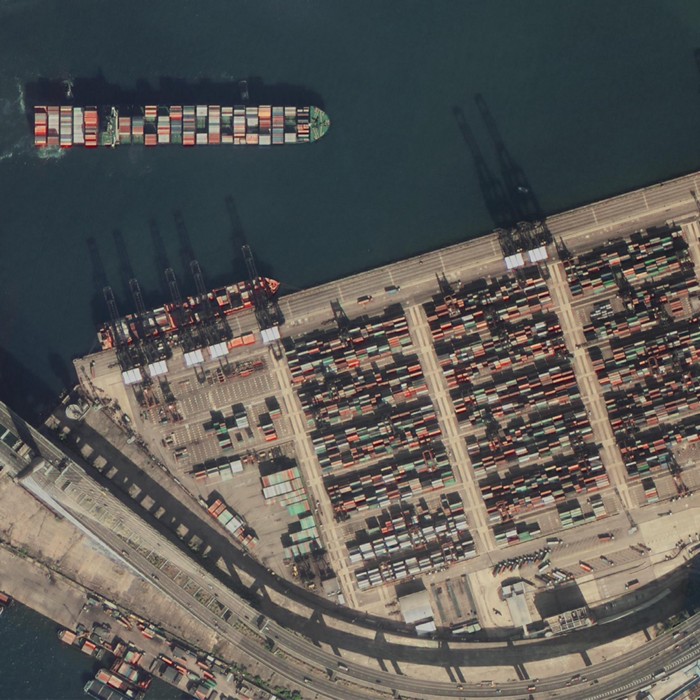Happy Holidays and Welcome to API version 2020–12
At Arlula, we’re always looking for ways to make satellite imagery much more accessible, so are pleased to announce some new updates to our API that will go live on the 29th of December 2020. We are expanding the capabilities and changing the structure of our API, so this new update may require you to update your integration and/or SDK to support the new version going forward.
We’ve included a description of the new updates and core features below, and as always the full Arlula API documentation can be viewed at www.arlula.com/documentation and you can create a new free account by visiting https://api.arlula.com/signup

Image Courtesy of SpaceWill
Updates in Version 2020–12
1. Minimum Area Ordering
The largest change for this release is exciting new functionality that streamlines Minimum Area Ordering. After receiving user feedback we have simplified and provided more functionality around Minimum Order Quantities (MOQ), which will ultimately make ordering much easier and more affordable than ever.
We have introduced logic that now allows us to calculate the supplier specific MOQ over your desired AOI. What this means is that we can now provide you a price specific to your AOI, rather than the scene in its entirety. Further to this, if your AOI is less than the MOQ for a supplier, we can automatically quote you on the smallest MOQ that encompasses your AOI. For point searches, we similarly construct a minimum order around the point and provide pricing for that area.
This results in some significant changes to the search result objects the API returns. The full details of which are available on our documentation page, but to summarise:
- The price no longer contains a scene and AOI pricing object, but is instead a single pricing object for the AOI/minimum order
- The overlap field is now always included in a result.
- The overlap.polygon field now describes the polygon to be ordered, which may have been enlarged to meet the minimum order.
- The overlap.percent field is now an object, providing the overlap of the overlap.polygon order with both the scene, and your original search area.
- The trim field is no longer part of the new order endpoint.
2. Coordinate ordering reversal
The coordinates in our bounding and overlap.polygon fields are now in the geoJSON standard for coordinate sets. As a result, points in those fields are now in a [longitude, latitude] order, replacing our old [latitude, longitude] order. This will hopefully make polygons easier to load into common geometry libraries and GIS tools with us now using the more common format.
3. Order Expiration
We have added an expiration field to order objects. This field will appear in both the order list, and order get endpoints of the API, and describe the date and time after which an order’s resources will no longer be available for download via the order resource get endpoint or dashboard. You will have to backup your satellite data locally before the expiry period occurs.
Orders for public datasets such as Landsat will not expire, and thus have their expiration set to null. Similarly, orders that are not yet complete will have an expiration of null.
For more details about the expiration period, please consult our documentation and terms of service.
4. API Deletion
By request we have added support for users being able to delete API accounts/credentials from the platform.
This is considered to be a tool of last resort, If credentials have been leaked, we advise you to change the API key and secret in the API details page. This does however, provide a means if you have completely lost the API secret for a given API.
5. Webhook Event Wrapping
Webhooks have been a core tool for receiving updates about the state of an order since the API went public. This change is a first step towards us making them more useful, and to support more messages in the future.
Webhook events now have an envelope that identifies the event that happened, and when it happened, along with the usual payload.
Webhooks will now receive a POST request with this envelope, with the order details as the payload
> {
> “Event”: “archive.order.complete”,
> “Timestamp”: “2020–12–16T07:04:24.711Z”,
> “Payload”: { … the normal payload … }
> }
This also introduces a few new events when orders enter specialized states, and unique event types for users using custom B2B ordering. Full details are available in the documentation.
For more details please view our documentation at www.arlula.com/documentation, you can create a new free account by visiting https://api.arlula.com/signup
If you have any questions at all, please feel free to contact us.
On behalf of everyone at Arlula, I hope you has a happy holiday and a well-deserved break!




